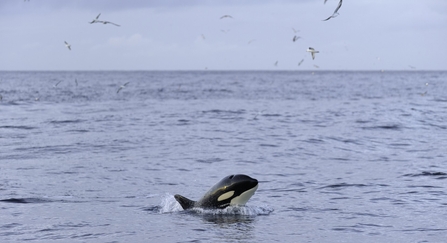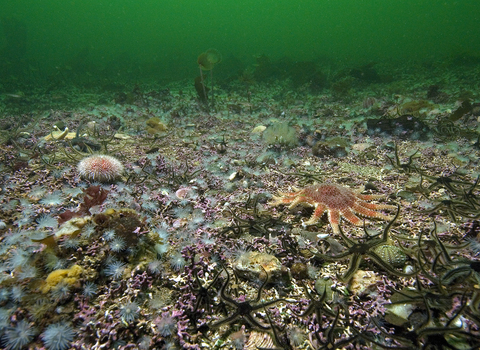A new briefing published by The Wildlife Trusts urges the UK Government to act fast to implement the commitments it made three years ago at the 2022 United Nations Ocean Conference. Unfortunately, many promises made at that time have yet to be implemented and UK seas continue to decline.
The follow-up United Nations Ocean Conference next week, 9th - 13th June, is a pivotal moment for the UK Government to fulfil its responsibilities and say how it intends to meet its global commitments to reverse the loss of marine wildlife and accelerate action to protect and sustainably use UK seas.
In the UK, over half of marine habitats are deteriorating and only 29% of estuaries and coastal bodies are in good ecological condition. Damage is largely due to unsustainable fishing and development, plastic pollution and agricultural run-off, leading to the degradation of delicate ecosystems.
Even Marine Protected Areas – nature reserves at sea – are not fully protected from destructive activities such as bottom trawling.


